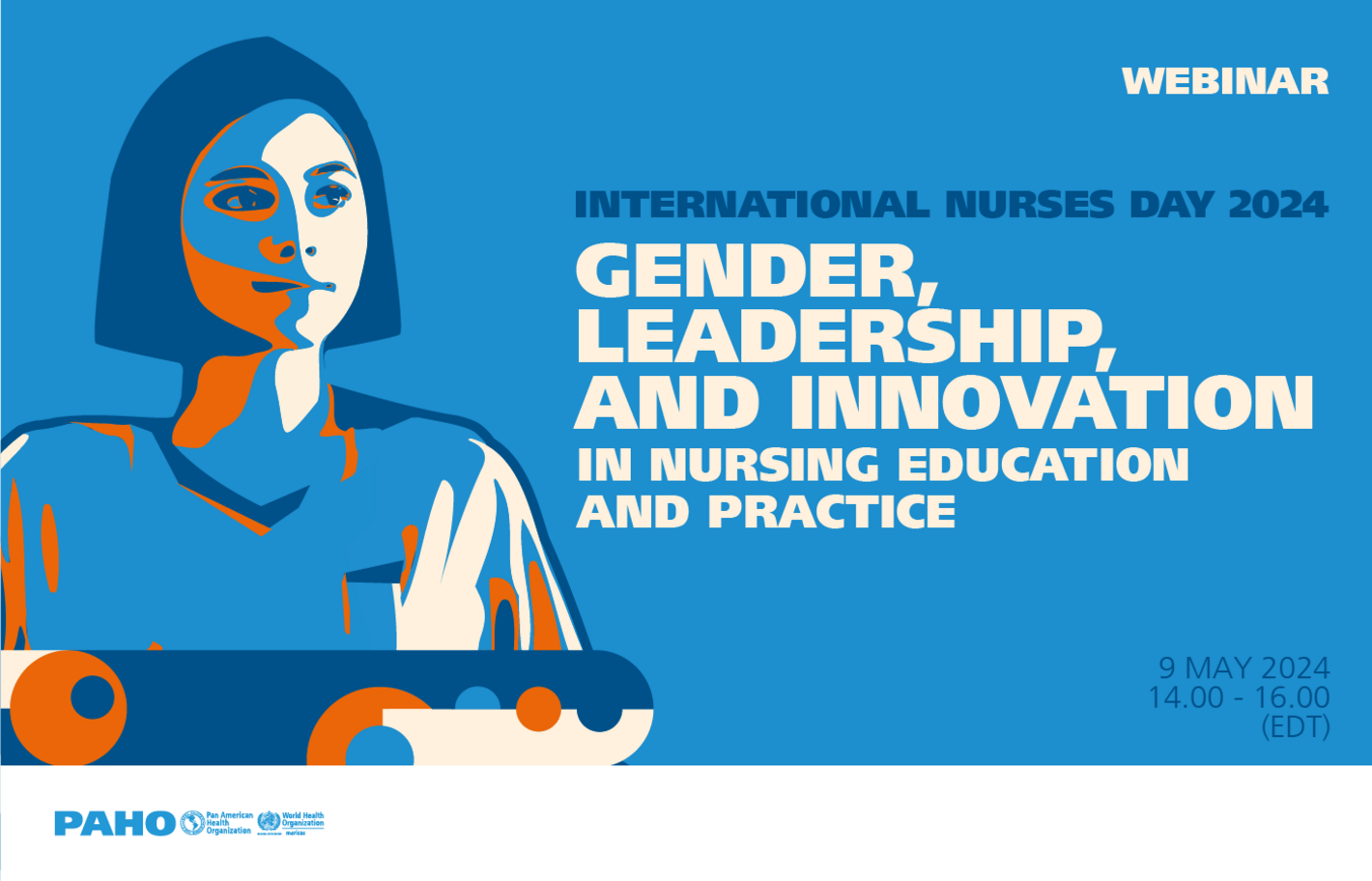
Join us on Thursday, 9 May 2024, from 2:00 to 4:00 pm (Washington DC time) to celebrate the International Nurses Day with the webinar "Gender, Leadership, and Innovation in Nursing Education and Practice".
This year, the Pan American Health Organization is proposing to discuss gender, leadership and nurse education in the Region of the Americas. At the global level, women account for 67% of the health workforce. In the Americas, 56% of health workers are nurses and over 80% are women. However, they face structural barriers and unequal opportunities in terms of labor market access and guaranteed labor benefits. On average, women earn 20 per cent less than men, have limited access to leadership positions, and are underrepresented in senior positions, both in health systems and in politics.[1]
The Policy on the Health Workforce 2030: Strengthening Human Resources for Health to Achieve Resilient Health Systems (CD60/6), adopted by PAHO Member States in September 2023, highlights the importance of mainstreaming a gender perspective into health sector employment policies, with an emphasis on actions that ensure protection and decent conditions of employment, with guaranteed gender-neutral remuneration for health workers.
Nurses are key players in health promotion and disease prevention. They are the backbone of healthcare systems worldwide, working on the front line of disease prevention, health promotion, and health management. They are often the forgotten heroes in health services and emergency response, despite their critical role. It is necessary to invest in nursing education, jobs, leadership, and service delivery.
Recognizing the outstanding role of nursing professionals, International Nurses Day activities will focus on fostering discussions and sharing knowledge and actions in the areas of gender, leadership, and innovation in nursing education and practice.[2]
How to participate
- DATE: Thursday, 9 May 2024
- TIME: 2:00 pm - 4:00 pm (EDT)
- REGISTER: https://paho-org.zoom.us/webinar/register/WN_ubf_G0riRSerRLizlI64LA#/registration
- After registering, you will receive a confirmation email with information on how to join the webinar
- Check the time in your timezone
- LANGUAGE: There will be simultaneous interpretation in English, French, Spanish and Portuguese.
Objective
- Foster debate on gender, leadership, and innovation in nursing education and practice in the Region of the Americas.
Participants
- Ministries of Health and Education, university representatives, PAHO/WHO Collaborating Centers, nursing associations, chief nursing officers, nursing professionals, students, and other stakeholders.
Recording
Agenda
Room A
Moderator: Silvia Cassiani, Advisor on Nursing and Health Technicians, PAHO/WHO
Activity and panelists
Opening remarks
Mary Lou Valdez, Deputy Director, PAHO/WHO
The economic power of nursing care
Pamela Cipriano, President, International Council of Nursing
Panel: Nursing Innovation, Education and Practice
Moderator: Benjamin Puertas, Unit Chief, Human Resources for Health, PAHO/WHO
Leigh Chapman, Chief Nursing Officer, Canada
Heimar Marin, Fellow of the American College of Medical Informatics and Full Professor at the Federal University of São Paulo, Brazil
Perla Simons Morales, Dean, Facultad de Ciencias Médicas, Universidad Nacional Autónoma de Honduras
Launch of the Virtual Course - Nursing Leadership: Strengthening Management of Nursing Practice in the Caribbean
Gabriel Listovsky, Special Program Chief, Virtual Campus of Public Health (VCPH), PAHO/WHO
3:45 p.m. - 4:00 p.m. Closing remarks
[1] Fitzgerald J et al. La importancia del enfoque de género en la construcción de sistemas de salud resilientes, equitativos y universales. [The Importance of a Gender Focus in Building Resilient, Equitable, and Universal Health Systems]. Pan American Journal of Public Health, 2023, 47:1. https://doi.org/10.26633/RPSP.2023.135
[2] Pan American Health Organization. (2022). The Strategic Importance of National Investment in Nursing Professionals in the Region of the Americas. Washington, D.C.: PAHO; 2022. Available from: https://iris.paho.org/handle/10665.2/55957
